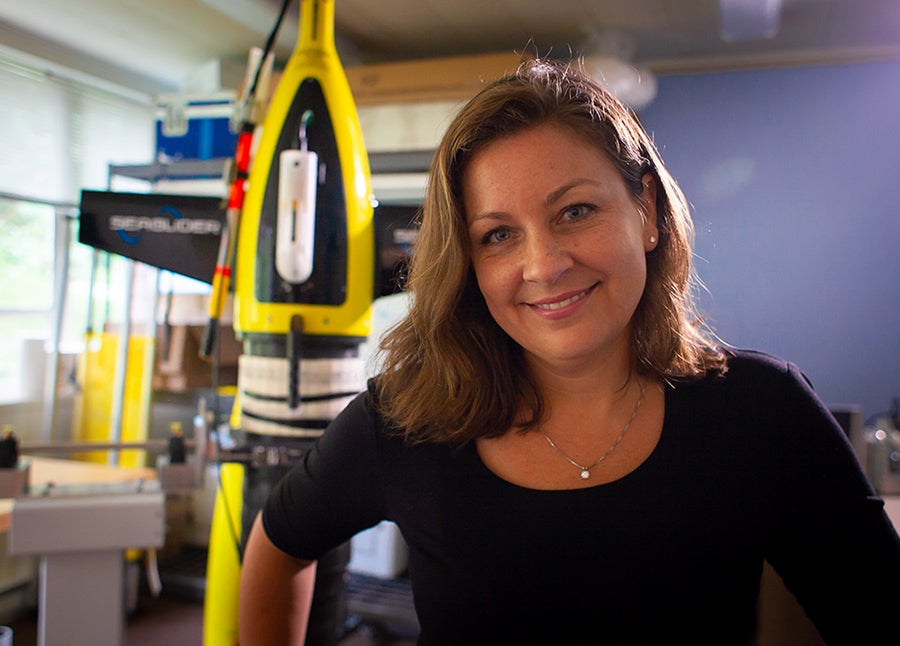“Above water, GPS technology tells us where things are, but that doesn’t work underwater. I want to use sound to determine locations in the marine environment.”

Lora Van Uffelen
—Assistant Professor of Ocean Engineering
Lora Van Uffelen spends way more time than she’d like running back and forth between her lab and her office, which are located across campus from each other. It’s more than just inconvenient; it’s not conducive to efficient teaching or research.
That’s one of several reasons why the assistant professor of ocean engineering is looking forward to the construction of the new Ocean Technology Building. Her lab and office will be nearby, many of her colleagues and collaborators will be in the same building, and the laboratory facilities will be designed to accommodate her specific research needs.
Van Uffelen uses underwater vehicles like gliders to study how sound travels through the water and how it can be used to learn about the ocean and determine the location of platforms in the marine environment. “Above water, GPS technology tells us where things are, but that doesn’t work underwater,” she said. “I want to use sound to determine locations in the marine environment.”
Her underwater vehicles contain acoustic receivers that are helping her study sound propagation in the Arctic, where oceanographic conditions have changed dramatically in recent decades, causing sound to travel very differently than it used to. She also uses acoustic sensors to listen for the sounds of marine mammals.
“The new building with a tank specifically built for underwater vehicles is going to be great for testing my vehicles and will make it easier to move my vehicles from the lab to the outside for satellite access,” Van Uffelen said. “It’s going to make life so much easier.”
